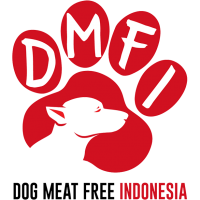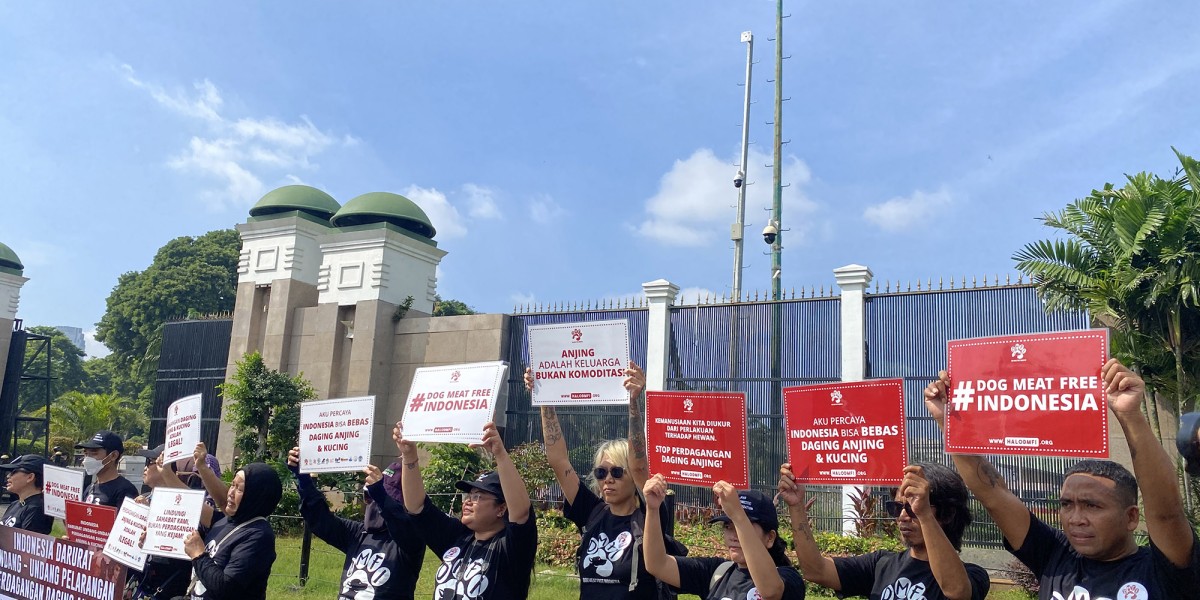
Animal lovers rally outside Indonesia’s parliament in Jakarta calling for a national dog and cat meat trade ban
The rally, led by the Dog Meat Free Indonesia coalition and Animals Hope Shelter in collaboration with five other national groups and coalitions*, follows the high-profile interception last month of 226 dogs in Central Java being trafficked for meat. It also comes just weeks after the parliament in South Korea passed a national ban on the dog meat industry there, which campaigners hope will inspire the Indonesian government to act, particularly with presidential elections taking place on 14th Feb.
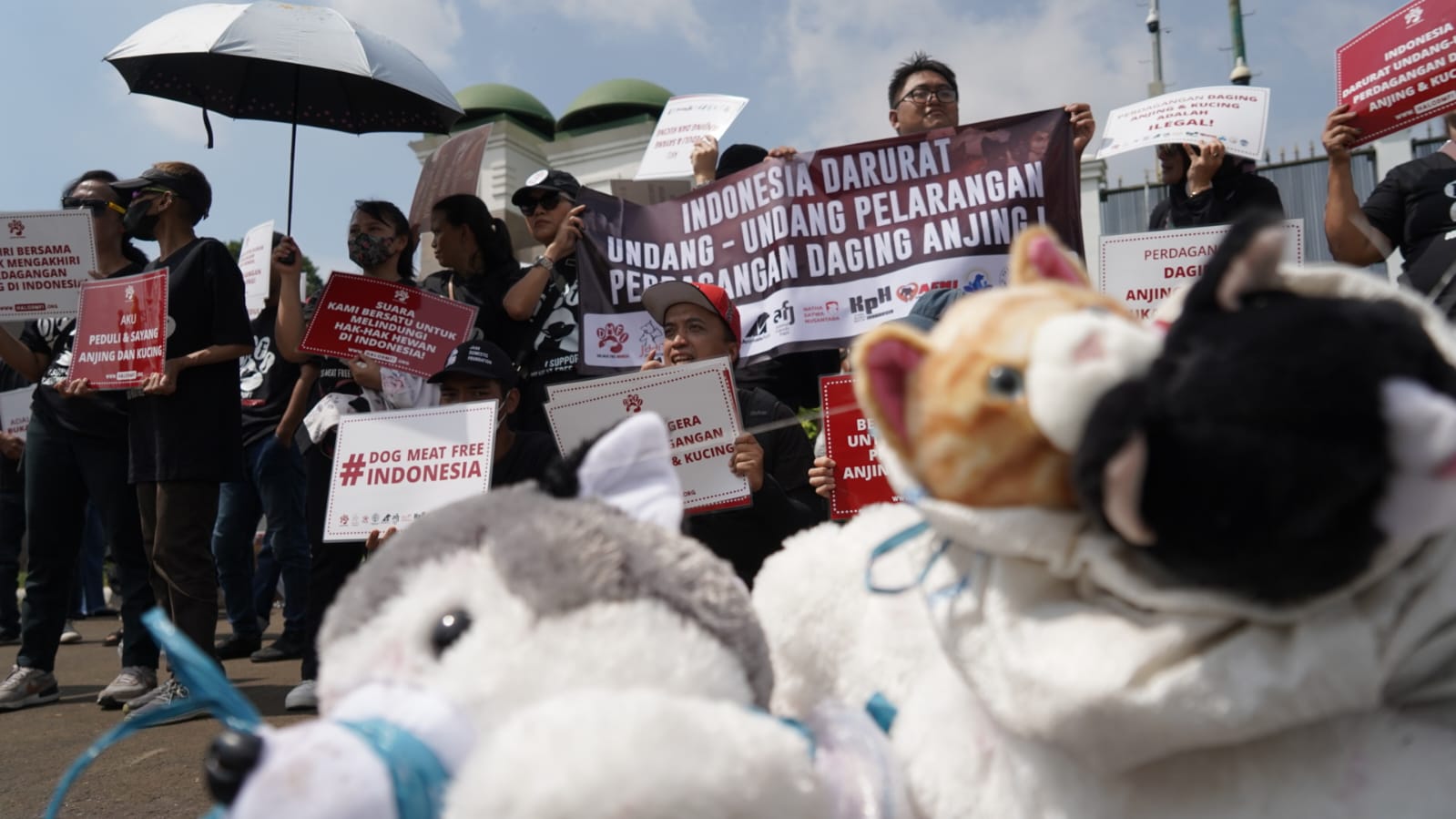
DMFI has campaigned for an end to the trade for years, conducting numerous shocking investigations into the underworld network of dog and cat thieves, traffickers, traders and slaughterers. As a result of DMFI campaigns, more than 50 cities, regencies and provinces across Indonesia―including the Special Capital Region of Jakarta―have introduced bans on the trade, but the campaigners say that without a robustly enforced national ban, the trade will continue unabated.
Evidence from both Indonesia and throughout the region has demonstrated the rabies risk the dog meat trade poses, facilitating its transmission and hindering attempts to eliminate the fatal disease, jeopardising the ASEAN pledge to eliminate dog-mediated rabies by 2030.
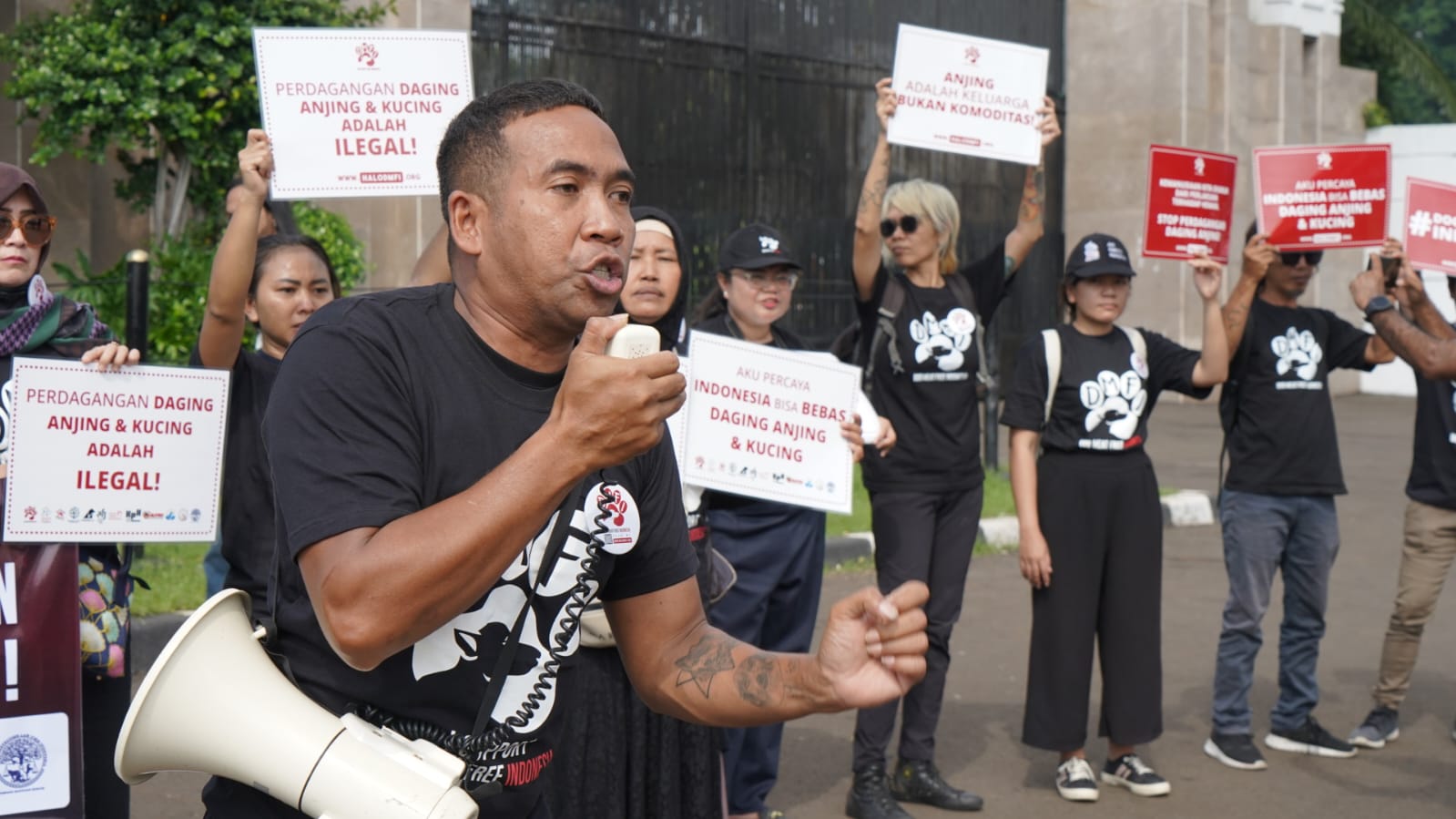
Lola Webber, director of campaigns to End Dog Meat at Humane Society International, a DMFI member group, says: “More than a million dogs and untold numbers of cats are snatched from their homes or the streets and endure immense cruelty for the meat trade in Indonesia. This trade continues despite the fact that only a small fraction of the population eats it and the trade poses a very real threat to the health of the whole nation by facilitating the spread of deadly rabies and other diseases. Most people here in Indonesia want a national ban to end this cruelty once and for all, and all of us attending this rally hope that the example recently set by South Korea will inspire Indonesia to become the next country in Asia to ban this trade for good.”
A Nielsen opinion poll in January 2021, commissioned by DMFI, revealed that 93% of Indonesians support a national dog meat ban with fewer than 5% having ever consumed dog meat and 88% agreeing that the issues of the dog meat trade and consumption of dog meat need to be addressed immediately by all political parties.
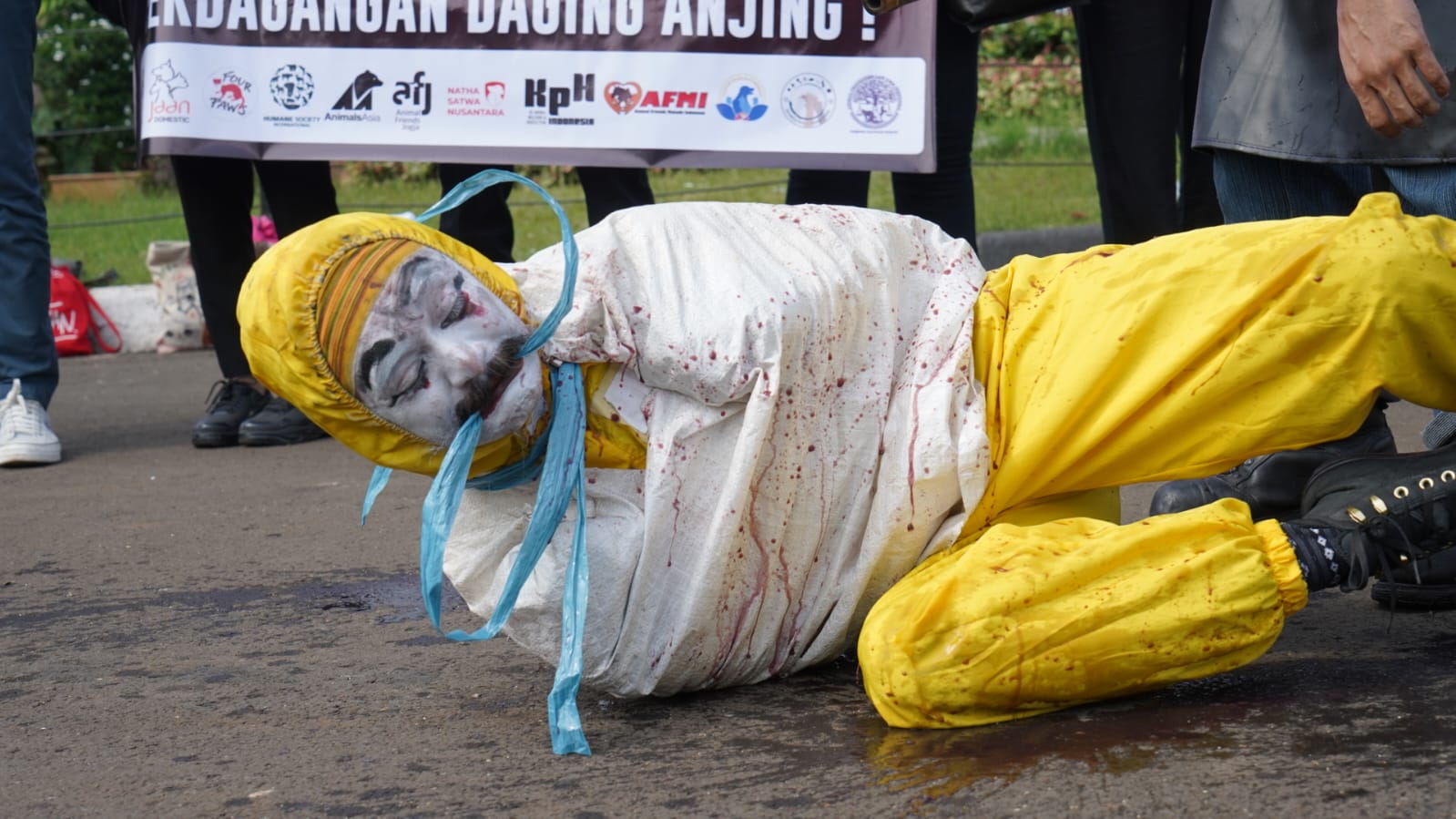
Karin Franken, founder of Jakarta Animal Aid Network, a DMFI member group, said: “We are rallying here alongside national animal protection groups and activists on behalf of the millions of dog and cat-loving and concerned citizens across Indonesia, to call for a national ban on the brutal dog and cat meat trades. These trades are intolerably cruel and dangerous, and it’s time for our government to prioritize the health and welfare of both animals and people by implementing a nationwide ban.”
Karen O’Malley, Programme Manager for Ending the Dog and Cat Meat Trade at FOUR PAWS International, a DMFI member group, said: “Across Asia, an estimated 30 million cats and dogs are stolen from their homes or the streets, transported long distances in awful conditions, then brutally slaughtered for their meat, every single year. Now is the time for this cruel trade to be brought to an end, for the health and welfare of both animals and humans. We are hopeful that Indonesia, along a number of their Southeast Asian neighbours, will follow South Korea in introducing a nationwide ban.’
* Full list of participating groups: DMFI coalition, JAAN domestic, Humane Society International, FOUR PAWS International, Animals Asia, Animal Friends Jogja, Natha Satwa Nusantara, Koalisi Perlindungan Hewan Indonesia, Animal Friends Manado Indonesia, Animal Hope Shelter, Animals Don’t Speak Human, LBH Perlindungan Hewan Indonesia.
A copy of the letter submitted to the House of representatives is available here (ENG) and here (Bahsasa Indonesia)

